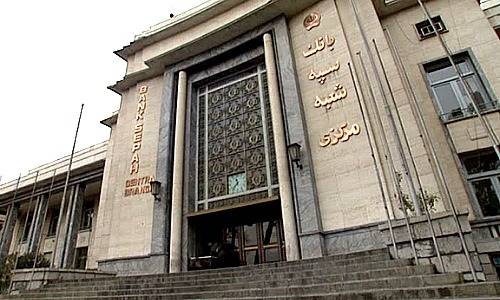Banking With the Mullahs
Two weeks ago, sanctions against Iran were lifted. Banks are losing no time building business relations in a potentially lucrative market.
In their desperation to woo potential customers, companies and countries go very far: the covering up of works of art in Italy this week in a bid not to offend the supposedly sensitive souls from Tehran serves as a reminder of what nobody in his right mind wants to see.
Alas, nothing was allowed to get in the way of an investment deal worth 17 billion euros between Italy and Hassan Rohani's Iran.
Two weeks ago, sanctions against the country of the Shiite mullahs were lifted. Already, Europeans in particular are falling over each other scrambling to get the biggest deals. Aircraft makers, car manufacturers and governments backing them up have started a race to open one of the last 'untouched' markets in their vicinity. They are not alone of course.
Financial Sanctions Lifted
Swiss bankers are following suit. The Swiss banking regulator Finma on January 19 said most sanctions against Iran had been lifted. Of particular importance to the industry was the decision that transfers of money to companies and people in Iran no longer need to be reported and approved by the state.
Yesterday, Finma followed up with a statement saying that Bank Sepah had been taken off the list of sanctioned companies. A strong signal to those who are evaluating the market.
One of the specialists for Iran is Beat Wittmann, a former manager at UBS, Credit Suisse and Julius Baer. Today, he runs his own consultancy, Porta Advisors. In 2015, Wittmann published a report about a road-trip to Tehran, where he met with business people and technocrats. His conclusion was that the opportunities for business in the market of 78 million people were outstanding.
Banque Reyl, the Pioneer
Banque Reyl has now been the first off the mark. The company signed an agreement with Turquoise Partners, it said in a statement yesterday. Turquoise is said to be a leading financial services company in Iran.
Together, the two companies will launch a fund in Dubai, which will make investments in Iran. The focus industries will be consumer goods, health care and hospitality. Reyl and Turquoise plan to raise $200 million with investors by the summer.
Opportunities – With Little Risk?
KK Group, a research provider based in Zurich, is also paving the way for investors and wealth managers to become active in the market recently opened. The consultants see good opportunities in the financing of trade, in direct investments and joint ventures, for instance in the manufacturing of cars, drugs, telecommunications and cement.
Investing in equity may offer a relatively easy chance to profit from a resurgent economy, according to KK Group.
Chances, opportunities, projects – not much space for risk evaluation it seems. Not many days ago, Iran was a no-go-zone for Swiss banks. After all, Credit Suisse was forced to pay a fine of $536 million in the U.S. in 2009 for a violation of Iran sanctions.
U.S. Sanctions Still Apply
And the risks haven't gone away. The U.S. still prevents companies from doing business with the mullahs. The Republican Guards, an infamous military unit protecting the regime, is in control of as much as a quarter of the economy. They and similar groups are still sanctioned.
Jonathan Friedman, an expert on Iran at Stroz Friedberg, is cautious in his assessment. A network of sanctions remained in place and new ones will be added, for example in respect to the missile program, he told finews.ch. At the same time, the rivalry between Iran and Saudi Arabia is heating up, he added.
Thus, the risks for investors remain as high as ever, Friedman concluded.




























